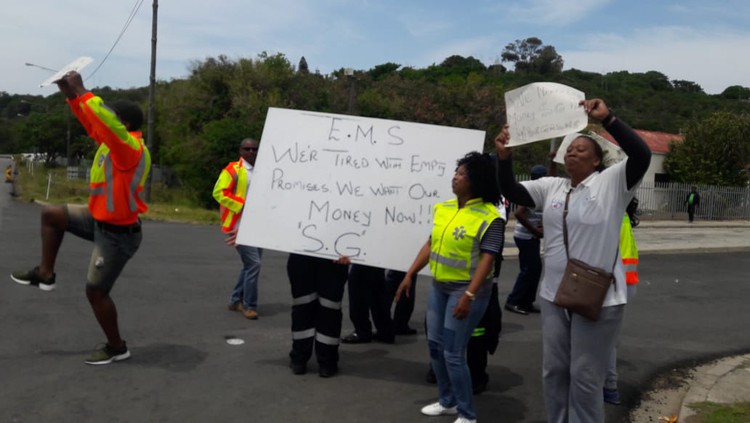Emergency health workers demand overtime pay
Eastern Cape health department warns strike is illegal
Eastern Cape emergency medical services workers went on strike on Monday demanding outstanding overtime pay. Some workers claim they have not been paid their overtime pay since 2003.
The strike has been declared illegal by officials who have promised to take disciplinary action against striking employees.
Eastern Cape Health MEC said, “We are disappointed that the workers have embarked on an illegal strike knowing that they are employed as essential services and therefore are not to be on strike. The department will undertake internal processes for on duty employees involved in this illegal strike. “
Sauls-August said her department was busy processing overtime payments from 2015 to 2018.
An ambulance driver who has been employed for nearly ten years said they were working under stressful conditions. The driver, who did not want to be named, said employees were often met with a hostile reception in communities where they were blamed for arriving late to help patients.
“This should be blamed on government that has very few ambulances and is understaffed. We are overwhelmed by calls and we end up working overtime.”He said the department had promised to pay overtime “but nothing has materialised. “
Another employee who also requested anonymity said he was owed “a lot of money for the past two years”.
“We expect to be paid what is due to us.”
The department said private ambulances would be used to respond to life-threatening cases during the strike.
Ambulances in parts of the Eastern Cape are notorious for the amount of time they take to arrive. In 2013, according to NSP Spotlight, residents of Xhora lodged a complaint with the Human Rights Commission about the tardy ambulance service. In 2017, GroundUp published a story of a Mooiplaas resident who was attacked and injured. Eventually, five hours after calling an ambulance, the person had to be taken to hospital in a private vehicle.
Support independent journalism
Donate using Payfast

© 2018 GroundUp.
This article is licensed under a Creative Commons Attribution-NoDerivatives 4.0 International License.
You may republish this article, so long as you credit the authors and GroundUp, and do not change the text. Please include a link back to the original article.

